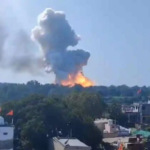What is the case?
Maldivian President Mohamed Muizzu announced on Monday that India and the Maldives have struck an agreement to return the original number of Indian troops stationed in the Maldives by March 10 of this year.
According to local media reports, President Muizzu made this declaration during his inaugural address at the start of the final session of the 19th Parliament, emphasizing that talks with India are presently underway about the evacuation of their troops.
What did President of Maldives says?
According to Sun Online, Muizzu indicated that the Indian Army plans to relocate military personnel from one of the Maldives’ three aircraft sites by March 10, 2024. He went on to say, “The military personnel of the remaining two platforms will leave by May 10.”
Muizzu emphasised that as president, his first responsibility was to protect the Maldivians’ freedom and sovereignty.
He stated that the vast majority of Maldivians’ support for his government was a “pledge to withdraw foreign troops from Maldives, recover the lost part of Maldives seas, and cancel any agreement made by the state that could undermine Maldives sovereignty.”
Mohamed Muizzu declared in his address to Parliament that he will establish the Maldives military’s capabilities to maintain the Exclusive Economic Zone (EEZ) around the clock.

Adhadhu’s Point of View?
Adhadhu, a Maldives-based online news organisation, stated that only 24 Maldivian Members of Parliament (MPs) attended the People’s Majlis’ inaugural session, when Muizzu delivered his first presidential address. The opposition, which included the Maldivian Democratic Party (MDP) and the Democrats, elected to boycott the session, expressing worries about the “undemocratic ways of the government.”
A total of 56 MPs boycotted the first sitting. This includes 13 Democratic MPs and 44 MDP MPs. Furthermore, the departure of Indian troops from the Maldives was a key component of Muizzu’s party campaign. Currently, over 70 Indian troops, escorted by a Dornier 228 maritime patrol aircraft and two HAL Dhruv helicopters, are stationed in the Maldives
Day 2 of President
On the second day of his president, Muizzu publicly requested that the Indian government evacuate its armed soldiers from the Maldives. Muizzu had previously stated in December of the previous year that an agreement had been reached with the Indian government about the removal of Indian military soldiers. In the most recent development, the Maldives and India held their second high-level core group meeting in New Delhi last week.
“Both sides agreed that the Government of India will replace the military personnel in one of the three aviation platforms by 10 March 2024, and will complete replacing military personnel in the other two platforms by 10 May 2024,” declared the Ministry of Foreign Affairs of the Maldives. The Maldives claimed that during the second meeting of the two countries’ high-level core group, all sides undertook a thorough evaluation of current bilateral cooperation. The emphasis was on strengthening the alliance in areas like as defence and security cooperation, economic collaboration, and development cooperation.
Is Agreement between two countries friendly?
An agreement was made to hold the third meeting of the high-level core group in Male during the last week of February, on a date that was mutually acceptable. Importantly, the MEA stated in its statement that India and the Maldives have reached an agreement on practical solutions to support the continued operation of Indian aviation platforms that provide humanitarian and medevac services to the Maldivians. India had issued a formal protest to the Maldives administration.
Several celebrities posted on X, urging the public to boycott the country, whose economy is heavily depends on tourism. Within three weeks of the boycott demands, India had risen to the fifth largest Maldivian market from third. Muizzu visited China last month and requested the communist country to send in more tourists, a remark that was interpreted as aimed at India in light of the boycott calls.






